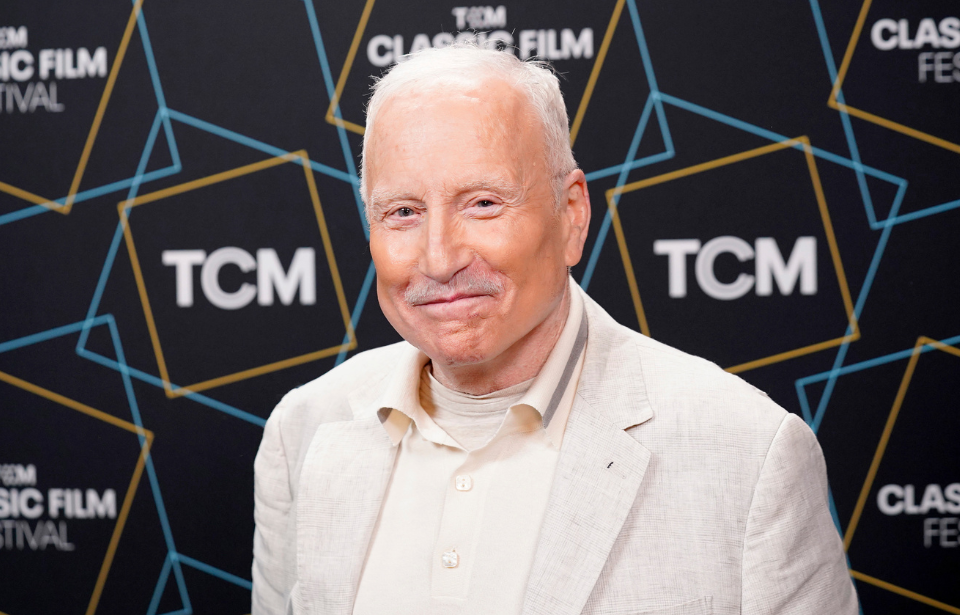Richard Dreyfuss is an American actor best known for his appearances in films such as Jaws (1975), Close Encounters of the Third Kind (1977), and Mr. Holland’s Opus (1995). In 1978, he won the Oscar for Best Actor in a Leading Role for The Goodbye Girl (1977). He went on to establish the Dreyfuss Civics Initiative, hoping to revive civic education in the American school system. In an interview on PBS’s Firing Line With Margaret Hoover, Dreyfuss discussed his thoughts on civic education and also spoke about some new inclusivity requirements for the Academy Award’s Best Picture category.
The new requirements are intended to improve underrepresentation in film

In 2020, four new diversity and inclusion requirements were announced that will be instituted by the 2024 Academy Awards. The Academy’s then-president David Rubin and former CEO Dawn Hudson issued a statement about the new requirements: “The aperture must widen to reflect our diverse global population in both the creation of motion pictures and in the audiences who connect with them. The Academy is committed to playing a vital role in helping make this a reality. We believe these inclusion standards will be a catalyst for long-lasting, essential change in our industry.”
In order for a film to be submitted and qualify for Best Picture, it must include at least two of the four new requirements. The requirements are outlined as (1) expanding inclusivity in on-screen representation through the lead cast, secondary cast, or subject matter, (2) expanding inclusivity through creative leadership, department heads, and crew, (3) expanding inclusivity by providing opportunities and access to training to underrepresented demographics, and (4) expanding inclusivity through representation in audience development.
Dreyfuss slammed the new requirements

Opening up a discussion of these new requirements with Dreyfuss, Hoover explained, “Starting in 2024, films will be required to meet new inclusion standards to be eligible for the Academy Awards for Best Picture. They’ll have to have a certain percentage of actors or crew from under-represented racial or ethnic groups.” Dreyfuss immediately chimed in, saying that the new inclusion standards “make me vomit.”
“Because this is an art form,” he continued. “No one should be telling me as an artist that I have to give in to the latest, most current idea of what morality is. What are we risking? Are we really risking hurting people’s feelings? You can’t legislate that,” Dreyfuss told Hoover. “You have to let life be life. I’m sorry, I don’t think there is a minority or majority in the country that has to be catered to like that.”
He supports Laurence Olivier’s performance in 1965’s Othello

During the interview, Dreyfuss went on to express his support for the use of blackface on Laurence Olivier, an English actor, in the 1965 film adaptation of the Shakespeare play, Othello. The use of such makeup was controversial even at the time.
“He played a Black man brilliantly,” Dreyfuss said. “Am I being told that I will never have a chance to play a Black man? Is someone else being told that if they’re not Jewish, they shouldn’t play [in] ‘The Merchant of Venice’? Are we crazy? Do we not know that art is art?” Dreyfuss exclaimed.
Dreyfuss continued to explain his disdain for the new Academy requirements and the direction Hollywood has been heading toward in its attempt to diversify and increase inclusivity. “This is so patronizing,” he said. “It’s so thoughtless and treating people like children.” When Hoover asked if he thinks there is a difference between representation and who is allowed to represent other groups, she offered him the case of blackface and the history in America of slavery and racism.
More from us: Why Are People Still Partying on Plantations?
“There shouldn’t be because it’s patronizing,” Dreyfuss responded. “Because it says we’re so fragile that we can’t have our feelings hurt. We have to anticipate having our feelings hurt, our children’s feelings hurt. We don’t know how to stand up and bop the bully in the face.”
Let us know what you think about the new Academy Award requirements in the comments below!
